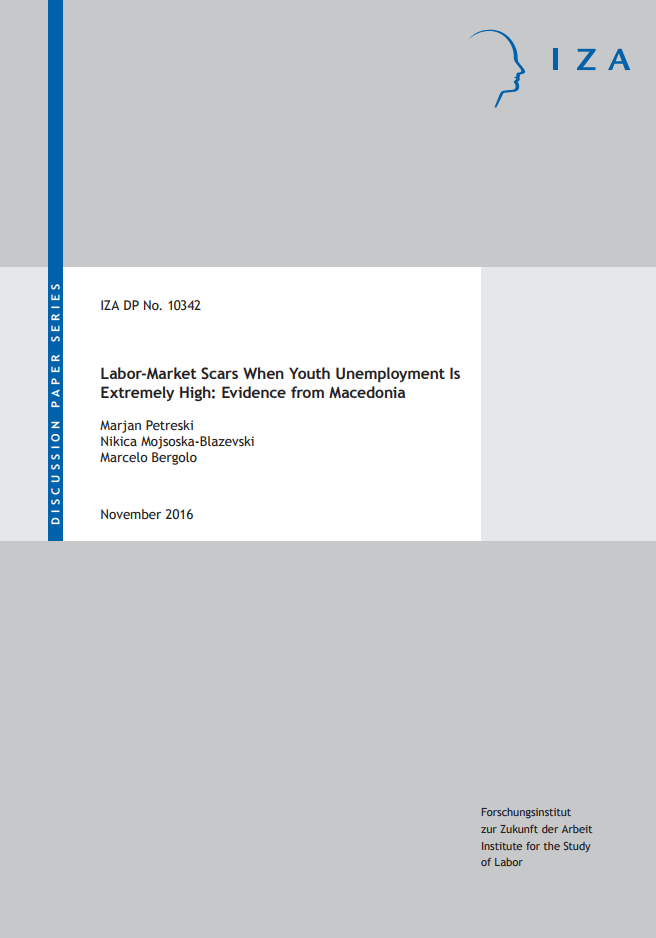
The objective of this study is to assess how the duration of the unemployment spell of Macedonia youth affects later employment (the employment 'scarring' effect) and wage outcomes (the wage 'scarring' effect). To that end, firstly it is devise a model in which the unemployment spell is determined by individual and household characteristics and work attitudes and preferences. Results robustly suggest a presence of employment scar as those young persons who stay unemployed over a longer period of time were found to have lower chances to find a job afterwards. On the other hand, the study does not provide evidence for the existence of the wage scar.